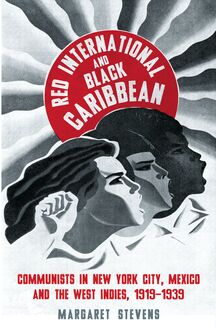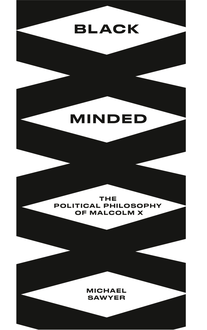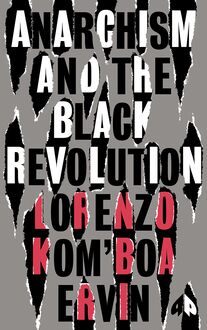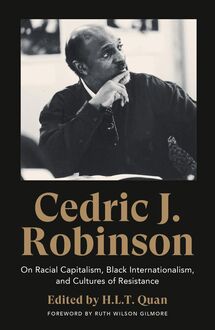-
 Univers
Univers
-
 Ebooks
Ebooks
-
 Livres audio
Livres audio
-
 Presse
Presse
-
 Podcasts
Podcasts
-
 BD
BD
-
 Documents
Documents
-
- Cours
- Révisions
- Ressources pédagogiques
- Sciences de l’éducation
- Manuels scolaires
- Langues
- Travaux de classe
- Annales de BEP
- Etudes supérieures
- Maternelle et primaire
- Fiches de lecture
- Orientation scolaire
- Méthodologie
- Corrigés de devoir
- Annales d’examens et concours
- Annales du bac
- Annales du brevet
- Rapports de stage
La lecture à portée de main
Vous pourrez modifier la taille du texte de cet ouvrage
Découvre YouScribe en t'inscrivant gratuitement
Je m'inscrisDécouvre YouScribe en t'inscrivant gratuitement
Je m'inscrisEn savoir plus
Vous pourrez modifier la taille du texte de cet ouvrage
En savoir plus

Description
For the first time, Robinson's essays come together, spanning over four decades and reflective of his diverse interests in the interconnections between culture and politics, radical social theory and classic and modern political philosophy. Themes explored include Africa and Black internationalism, World politics, race and US Foreign Policy, representations of blackness in popular culture, and reflections on popular resistance to racial capitalism, white supremacy and more.
Accompanied by an introduction by H. L. T. Quan and a foreword by Ruth Wilson Gilmore, this collection, which includes previously unpublished materials, extends the many contributions by a giant in Black radical thought.
Foreword by Ruth Wilson Gilmore
Preface by Elizabeth Peters Robinson
Introduction: Looking for Grace in Redemption - H. L. T. Quan
Part I - On Africa and Black Internationalism
1. Notes Toward a “Native” Theory of History
2. In Search of a Pan-African Commonwealth
3. The Black Detective and American Memory
Part II - On Bourgeois Historiography
4. “The First Attack is an Attack on Culture”
5. Oliver Cromwell Cox and the Historiography of the West
6. Fascism and the Intersections of Capitalism, Racialism, and Historical Consciousness
7. Ota Benga’s Flight Through Geronimo’s Eyes: Tales of Science and Multiculturalism
8. Slavery and the Platonic Origins of Anti-democracy
Part III - On World Politics and U.S. Foreign Policy
9. Fascism and the Response of Black Radical Theorists
10. Africa: In Hock to History and the Banks
11. The Comedy of Terror
12. Ralph Bunche and An American Dilemma
Part IV - On Reality and Its (Mis)Representations
13. White Signs in Black Times: The Politics of Representation in Dominant Texts
14. The American Press and the Repairing of the Philippines
15. On the Los Angeles Times, Crack Cocaine, and the Rampart Division Scandal
16. Micheaux Lynches the Mammy
17. Blaxploitation and the Misrepresentation of Liberation
18. The Mulatta on Film: From Hollywood to the Mexican Revolution
19. Ventriloquizing Blackness: Eugene O’Neill and Irish-American Racial Performance
Part V - On Resistance and Redemption
20. Malcolm Little as a Charismatic Leader
21. The Appropriation of Frantz Fanon
22. Amilcar Cabral and the Dialectic of Portuguese Colonialism
23. Race, Capitalism, and the Anti-democracy
24. David Walker and the Precepts of Black Studies
25. The Killing in Ferguson
26. On the Truth and Reconciliation Commission
Index
Sujets
Philosophie de la psychologie
Ethnic Studies
Black Studies
Comparative Politics
Political
Popular Culture
POLITICAL SCIENCE
PHILOSOPHY
Philosophie et théologie
USA
United States of America
Africana studies
Post-war
General officer
African diaspora
General
États-Unis
Social
Discrimination
Philosophie politique
Informations
| Publié par | Pluto Press |
| Date de parution | 20 octobre 2019 |
| Nombre de lectures | 0 |
| EAN13 | 9781786805218 |
| Langue | English |
Informations légales : prix de location à la page 0,1348€. Cette information est donnée uniquement à titre indicatif conformément à la législation en vigueur.
Extrait
Cedric J. Robinson
Black Critique
Series editors: Anthony Bogues and Bedour Alagraa
We live in a troubled world. The rise of authoritarianism marks the dominant current political order. The end of colonial empires did not inaugurate a more humane world; rather, the old order reasserted itself.
In opposition, throughout the twentieth century and until today, anti-racist, radical decolonization struggles attempted to create new forms of thought. Figures from Ida B. Wells to W. E. B. Du Bois and Steve Biko, from Claudia Jones to Walter Rodney and Am lcar Cabral produced work which drew from the historical experiences of Africa and the African diaspora. They drew inspiration from the Haitian revolution, radical Black abolitionist thought and practice, and other currents that marked the contours of a Black radical intellectual and political tradition.
The Black Critique series operates squarely within this tradition of ideas and political struggles. It includes books which foreground this rich and complex history. At a time when there is a deep desire for change, Black radicalism is one of the most underexplored traditions that can drive emancipatory change today. This series highlights these critical ideas from anywhere in the Black world, creating a new history of radical thought for our times.
Also available:
Moving Against the System:
The 1968 Congress of Black Writers and the Making of Global Consciousness
Edited and with an Introduction by David Austin
Red International and Black Caribbean Communists in New York City ,
Mexico and the West Indies, 1919-1939
Margaret Stevens
A Certain Amount of Madness:
The Life, Politics and Legacies of Thomas Sankara
Edited by Amber Murrey
Cedric J. Robinson
On Racial Capitalism, Black Internationalism, and Cultures of Resistance
Edited by H. L. T. Quan
FOREWORD BY RUTH WILSON GILMORE
First published 2019 by Pluto Press
345 Archway Road, London N6 5AA
www.plutobooks.com
Copyright the Estate of Cedric J. Robinson 2019
British Library Cataloguing in Publication Data
A catalogue record for this book is available from the British Library
ISBN 978 0 7453 4002 9 Hardback
ISBN 978 0 7453 4003 6 Paperback
ISBN 978 1 7868 0520 1 PDF eBook
ISBN 978 1 7868 0522 5 Kindle eBook
ISBN 978 1 7868 0521 8 EPUB eBook
This book is printed on paper suitable for recycling and made from fully managed and sustained forest sources. Logging, pulping and manufacturing processes are expected to conform to the environmental standards of the country of origin.
Typeset by Riverside Publishing Solutions, Salisbury, United Kingdom
Simultaneously printed in the United Kingdom and United States of America
Contents
Acknowledgements
Sources of Original Materials
Foreword by Ruth Wilson Gilmore
Preface by Elizabeth Peters Robinson
Introduction: Looking for Grace in Redemption
H. L. T. Quan
Part I On Africa and Black Internationalism
1 Notes Toward a Native Theory of History
2 In Search of a Pan-African Commonwealth
3 The Black Detective and American Memory
Part II On Bourgeois Historiography
4 The First Attack is an Attack on Culture
5 Oliver Cromwell Cox and the Historiography of the West
6 Fascism and the Intersections of Capitalism, Racialism, and Historical Consciousness
7 Ota Benga s Flight Through Geronimo s Eyes: Tales of Science and Multiculturalism
8 Slavery and the Platonic Origins of Anti-democracy
Part III On World Politics and U.S. Foreign Policy
9 Fascism and the Response of Black Radical Theorists
10 Africa: In Hock to History and the Banks
11 The Comedy of Terror
12 Ralph Bunche and An American Dilemma
Part IV On Reality and Its (Mis)Representations
13 White Signs in Black Times: The Politics of Representation in Dominant Texts
14 The American Press and the Repairing of the Philippines
15 On the Los Angeles Times , Crack Cocaine, and the Rampart Division Scandal
16 Micheaux Lynches the Mammy
17 Blaxploitation and the Misrepresentation of Liberation
18 The Mulatta on Film: From Hollywood to the Mexican Revolution
19 Ventriloquizing Blackness: Eugene O Neill and Irish-American Racial Performance
Part V On Resistance and Redemption
20 Malcolm Little as a Charismatic Leader
21 The Appropriation of Frantz Fanon
22 Amilcar Cabral and the Dialectic of Portuguese Colonialism
23 Race, Capitalism, and the Anti-democracy
24 David Walker and the Precepts of Black Studies
25 The Killing in Ferguson
26 On the Truth and Reconciliation Commission
Index
Acknowledgements
When Cedric J. Robinson died in June 2016, he left behind a rich legacy of learning, teaching, and radical social inquiries, of which this collection is a part. Cedric aimed at and frequently succeeded in supplying his students and the general public with works that are generative - his writings and public lectures sought to open up spaces previously unavailable and/or differently configured. In the process, he made it possible for many of us to join him in a collective journey to radicalize the academy, democratize knowledge, and redeem, in however small measures, our humanity in life and work within this precarious and unjust world order. It is thus a personal privilege for me to partake in this collective endeavor. For this privilege, a three-decade long friendship, and the countless life lessons, I am deeply indebted to Cedric and Elizabeth s generosity and kindred spirit. I am further indebted to Elizabeth who shepherded this project from the earliest stages (more than twenty years ago) through the reassembling of the materials for this acknowledgement, not to mention editorial support and the gentle, persistent urgings ensuring the final publication of this collection.
Elizabeth and I are grateful to a number of individuals whose contributions were invaluable to the making of this collection. Kofi Buenor Hadjor initiated the idea of a collection of essays to compliment Cedric s books, and Africa World Press publisher Kassahun Checole expressed early enthusiasm and support for it. Stephen Ward found and shared the complete draft of the previously unpublished, David Walker and the Precepts of Black Studies. Luz Maria Cabral co-authored The Mulatta on Film: From Hollywood to the Mexican Revolution, and gave permission for its republication. Ruth Wilson Gilmore graciously agreed to write the foreword, even in difficult circumstances.
We owe special thanks to the journal, Race Class and the Institute of Race Relations, especially Hazel Waters, Jenny Bourne, and the late A. Sivanandan for their deep engagement with Cedric s work and for making it possible for it to receive public, international airings; Sarah Suhail for research assistance, and M. A. Bortner for invaluable feedback. We are also deeply appreciative of the amazing editorial staff at Pluto Press and their dedication to seeing this project a reality, especially David Shulman s vision and patience and Paul Beanie s and Robert Webb s editorial supports.
We thank the following for permissions to reprint: the Fernand Braudel Center (Binghamton University) for Notes Toward a Native Theory of History ; Taylor Francis for In Search of a Pan-African Commonwealth, Slavery, and the Platonic Origins of Anti-Democracy, Malcolm Little as a Charismatic Leader , and Race, Capitalism, and the Anti-democracy ; the University of Minnesota Press for Oliver Cromwell Cox and the Historiography of the West ; the Center for the Humanities (University of Southern California) for Fascism and the Intersections of Capitalism, Racialism, and Historical Consciousness ; Wiley-Blackwell Publishing for Ota Benga through Geronimo s Eyes: Tales of Science and Multiculturalism ; Duke University Press for The Comedy of Terror ; The Santa Barbara News Review for Africa: In Hoc to History and the Banks, The Institute of Race Relations for The American Press and the Repairing of the Philippines, Blaxploitation and the Misrepresentation of Liberation, The Mullata on Film: From Hollywood to the Mexican Revolution , and The Appropriation of Frantz Fanon ; Palgrave MacMillian for Ventriloquizing Blackness: Eugene O Neill and Irish-American Racial Performance ; the Department of Political Science (University of Delhi) for Amilcar Cabral and the Dialectic of Portuguese Colonialism ; and, commonware.org for Ferguson, Gaza, Iraq. An Outline on the Official Narrative in Post-Racial America .
Finally, Cedric taught and wrote as he lived, cherishing the life and work of those who are decent, kind and generous in spirit, fighting the battles that needed to be fought, laughing in the face of horror, and never conceding that being oppressed is all that we are. In that spirit, we thank Crystal, Najda, and Jacob for their love and friendship.
Sources of Original Materials
1. Notes Toward a Native Theory of History: Review , Vol. 4, No. 1, Summer 1980, pp. 45-78 (Fernand Braudel Center).
2. In Search of a Pan-African Commonwealth. Social Identities , Vol. 2, No. 1, 1996, pp. 161-168 (Routledge - Taylor Francis).
3. The Black Detective and American Memory. The American Studies Association Annual Meeting. San Antonio, TX, November 18-21, 2010. Previously unpublished.
4. The First Attack is an Attack on Culture . Afro-Latin Cultural Festival . SUNY Binghamton. April 29, 1975. Previously unpublished.
5. Oliver Cromwell Cox and the Historiography of the West, Cultural Critique , No 17, Winter 1990-91, pp. 5-19 (University of Minnesota Press).
6. Fascism and the Intersections of Capitalism, Racialism, and Historical Consciousness. Humanities in Society , Vol. 3, No. 6, Fall 1983, pp. 325-349 (University of Southern California, Center for the Humanities).
7. Ota Benga through Geronimo s Eyes: Tales of Science and Multiculturalism. Multiculturalism: A Critical Reader , ed. David Theo Goldberg, 1994, pp. 388-405 (Wiley-Blackwell).
8. Slavery, and the Platonic Origins of Anti-democracy. The Changing Racial Regime, N
-
 Univers
Univers
-
 Ebooks
Ebooks
-
 Livres audio
Livres audio
-
 Presse
Presse
-
 Podcasts
Podcasts
-
 BD
BD
-
 Documents
Documents
-
Jeunesse
-
Littérature
-
Ressources professionnelles
-
Santé et bien-être
-
Savoirs
-
Education
-
Loisirs et hobbies
-
Art, musique et cinéma
-
Actualité et débat de société
-
Jeunesse
-
Littérature
-
Ressources professionnelles
-
Santé et bien-être
-
Savoirs
-
Education
-
Loisirs et hobbies
-
Art, musique et cinéma
-
Actualité et débat de société
-
Actualités
-
Lifestyle
-
Presse jeunesse
-
Presse professionnelle
-
Pratique
-
Presse sportive
-
Presse internationale
-
Culture & Médias
-
Action et Aventures
-
Science-fiction et Fantasy
-
Société
-
Jeunesse
-
Littérature
-
Ressources professionnelles
-
Santé et bien-être
-
Savoirs
-
Education
-
Loisirs et hobbies
-
Art, musique et cinéma
-
Actualité et débat de société
- Cours
- Révisions
- Ressources pédagogiques
- Sciences de l’éducation
- Manuels scolaires
- Langues
- Travaux de classe
- Annales de BEP
- Etudes supérieures
- Maternelle et primaire
- Fiches de lecture
- Orientation scolaire
- Méthodologie
- Corrigés de devoir
- Annales d’examens et concours
- Annales du bac
- Annales du brevet
- Rapports de stage











